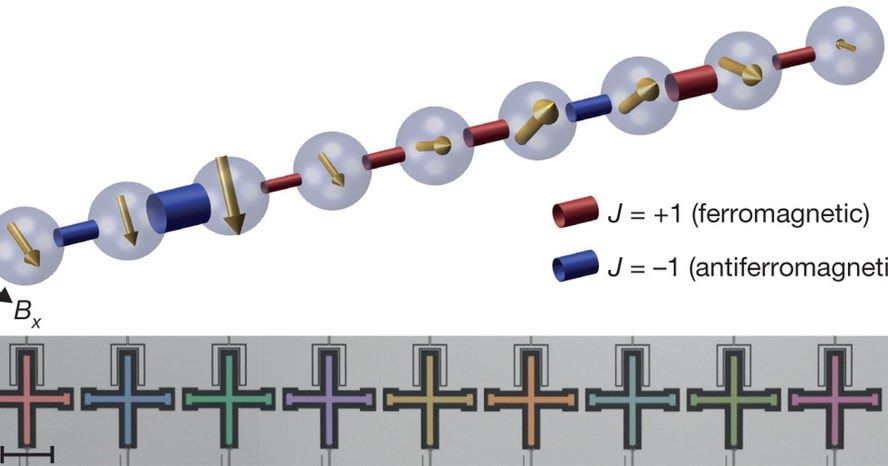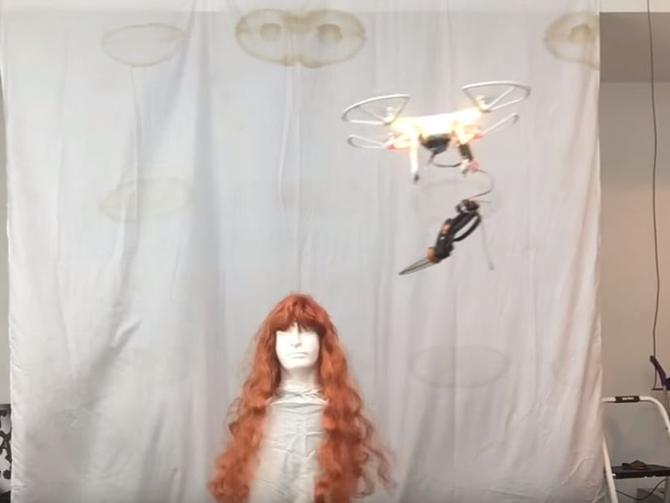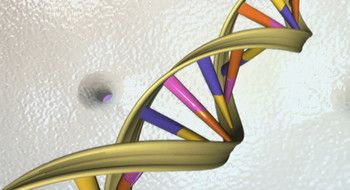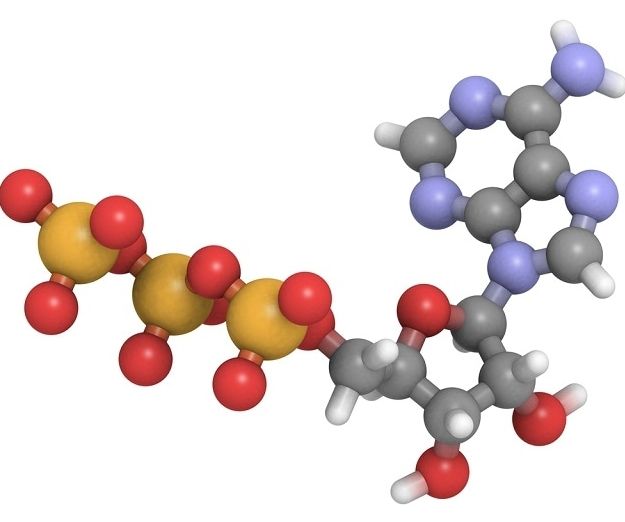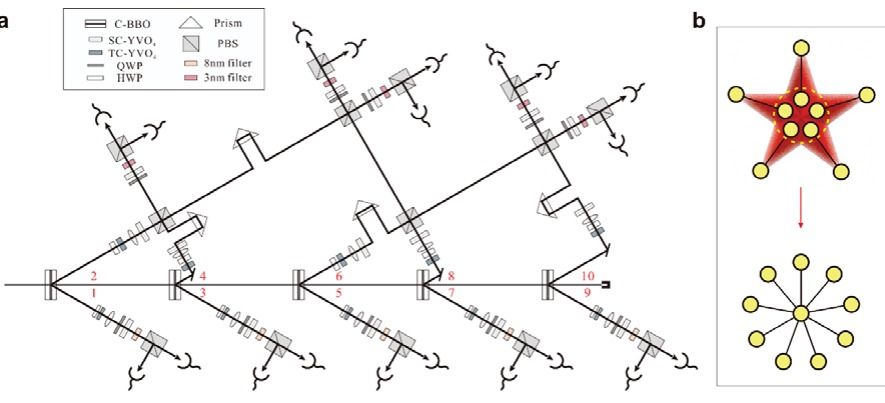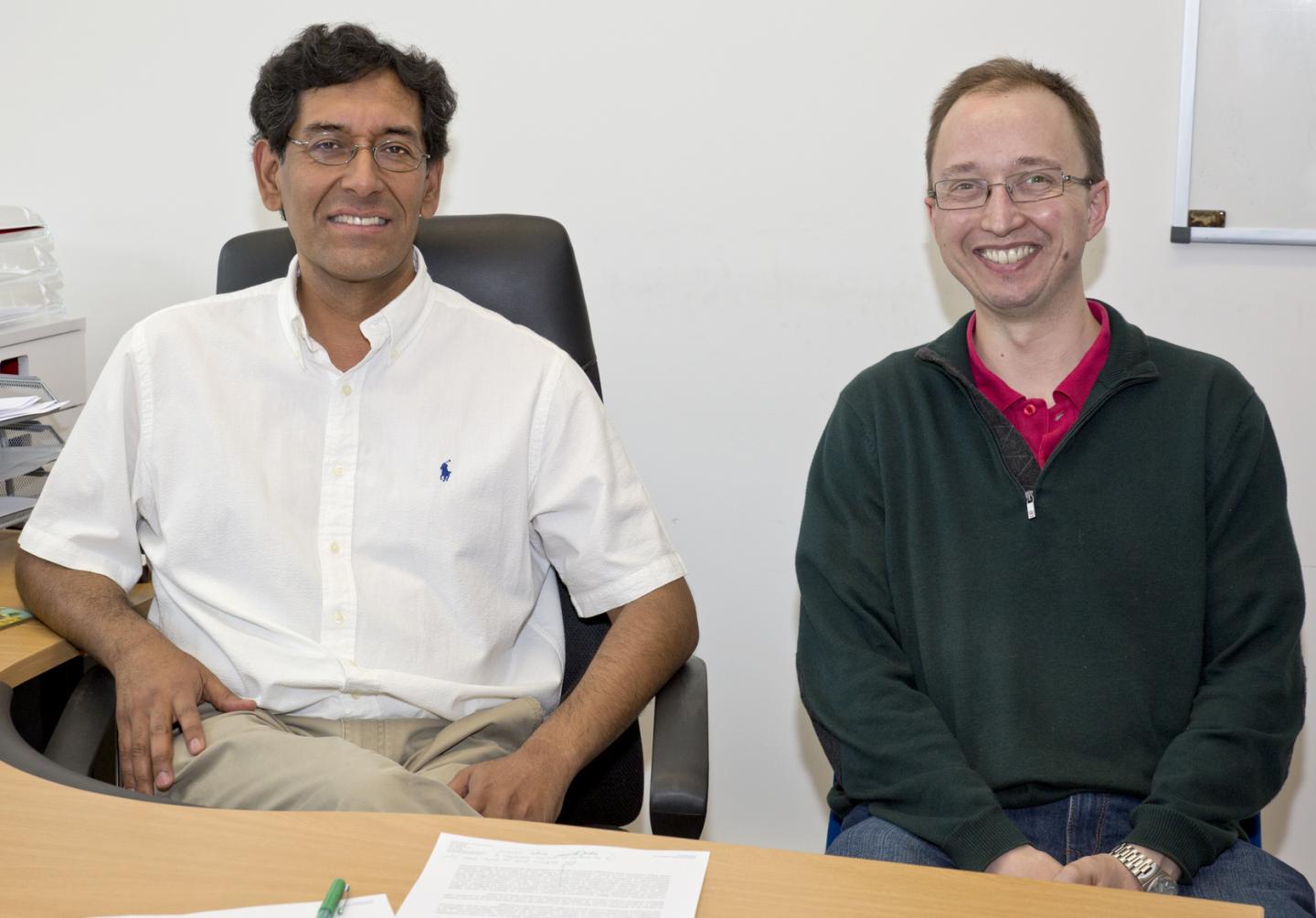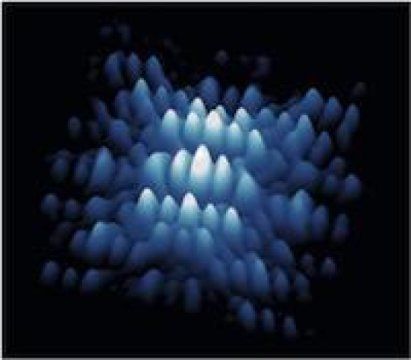Jun 9, 2016
Google team predicts quantum computing supremacy over classical computing around 2018 with a 40 qubit universal quantum computer
Posted by Klaus Baldauf in categories: computing, particle physics, quantum physics
The Google team uses a row of nine solid-state qubits, fashioned from cross-shaped films of aluminium about 400 micrometres from tip to tip. These are deposited onto a sapphire surface. The researchers cool the aluminium to 0.02 degrees kelvin, turning the metal into a superconductor with no electrical resistance. Information can then be encoded into the qubits in their superconducting state.
The interactions between neighboring qubits are controlled by ‘logic gates’ that steer the qubits digitally into a state that encodes the solution to a problem. As a demonstration, the researchers instructed their array to simulate a row of magnetic atoms with coupled spin states — a problem thoroughly explored in condensed-matter physics. They could then look at the qubits to determine the lowest-energy collective state of the spins that the atoms represented.
